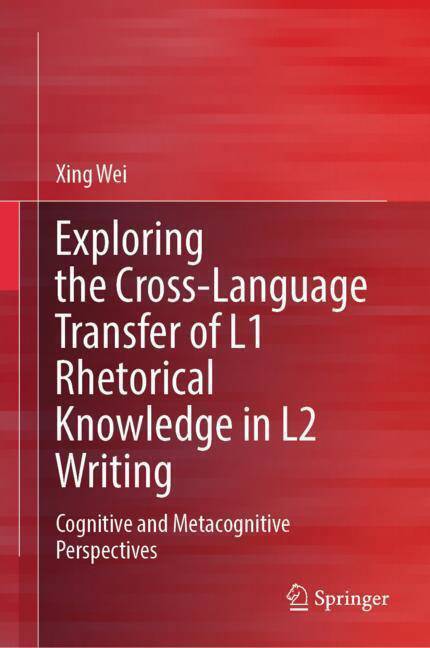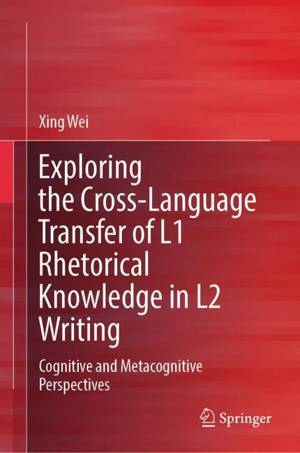
- Retrait gratuit dans votre magasin Club
- 7.000.000 titres dans notre catalogue
- Payer en toute sécurité
- Toujours un magasin près de chez vous
- Retrait gratuit dans votre magasin Club
- 7.000.0000 titres dans notre catalogue
- Payer en toute sécurité
- Toujours un magasin près de chez vous
Exploring the Cross-Language Transfer of L1 Rhetorical Knowledge in L2 Writing
Cognitive and Metacognitive Perspectives
Xing WeiDescription
This book addresses the transfer of rhetorical knowledge from a first language (L1) to a second language (L1-to-L2 rhetorical transfer), a common cognitive phenomenon in the L2 writing of students in foreign language learning environments. It investigates L1-to-L2 rhetorical transfer from a cognitive perspective and examines a specific component of L2 writers' agency in this transfer, namely metacognition. The book's ultimate goal is to enhance our understanding of the cognitive mechanism of rhetorical transfer across languages. This goal is in turn connected to the need to determine how L1 rhetorical knowledge can be steered and oriented toward successful L2 writing.
To this end, this book proposes a theoretical framework for transfer studies, encompassing the dimensions of text, transfer agency, and L2 essay raters. It facilitates an in-depth exploration of the intricacies involved in L1-to-L2 rhetorical transfer. It then presents empirical studies on this transfer. Embracing a dynamic perspective, this book furthers our understanding of interlingual rhetorical transfer as a conscious or intuitive process for making meaning, one that can be monitored and steered. Moreover, it discusses the pedagogical implications for L2 writing instruction that guides students to use metacognition to transfer L1 rhetorical knowledge during L2 writing.







